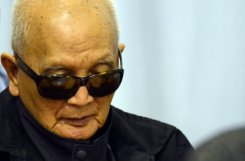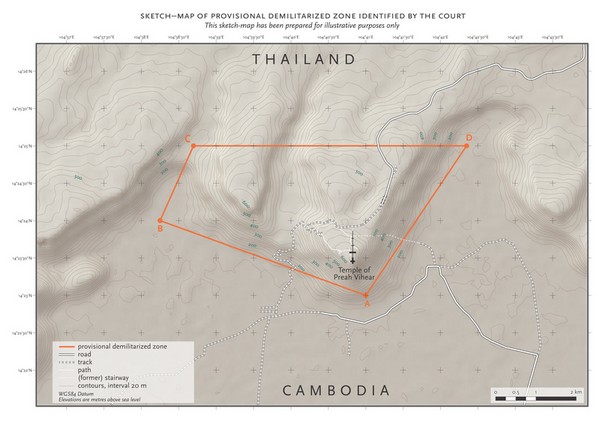By STEPHEN KALIN
Associated Press /
March 29, 2013
HARTFORD, Conn. (AP) — Early in the Vietnam
War, the U.S. military trained former Maj. Sar Phouthasack in special
combat operations and sent him back into his native Laos to put together
a local force to patrol the Ho Chi Minh Trail, rescue downed U.S.
pilots and conduct sensitive operations behind enemy lines.
Phouthasack was part of the Special Guerrilla
Unit, known as the ‘‘secret army’’ that the CIA established to conduct
covert operations in Laos, where North Vietnamese forces were operating
but U.S. forces were forbidden by Congress to enter.
More than 35,000 local fighters from the unit
died in combat in Laos, and thousands eventually relocated to the U.S.
and became citizens.
Phouthasack helped organize a daylong event in
New Britain on Saturday to honor the special unit of Lao and ethnically
Hmong men who were organized and funded by the CIA. About 200 veterans
are expected to gather from around the country in an event that is part
of the U.S. Department of Defense’s multi-year commemoration of the 50th
anniversary of the Vietnam War.
Since arriving in the U.S., the former
fighters have not been eligible to receive military veterans benefits.
In the coming weeks, unit veterans and the SGU National Headquarters in
Windsor, Conn., say they will petition Congress for formal recognition
of their service and for U.S. veterans benefits.
‘‘We don’t ask for a million dollars or
something like that because we know the government doesn’t have enough
money,’’ said Phouthasack. He said he wants the standard benefits, such
as medical care and the option of a military burial.
When the war ended in 1975, most unit members
escaped the communist takeover in Laos by fleeing to refugee camps in
Thailand before thousands moved to the U.S. Phouthasack served the U.S.
military for 20 years in Laos, Vietnam, Cambodia and Thailand before he
moved to Connecticut in 1983 with his family and became a U.S. citizen.
Dennis Tarciani, who served in the Marines
during the Vietnam War and is a senior adviser at the SGU National
Headquarters, said the unit members saved many American lives.
‘‘One pilot was downed 12 times and saved by
the SGU each time,’’ Tarciani said. ‘‘The SGU were recruited, trained,
paid and led by the U.S. government. They feel that they were part of
the American military.’’
Gov. Dannel P. Malloy planned to attend the
opening ceremony on Saturday, joined by U.S. Reps. John Larson and Joe
Courtney, both Democrats, and other U.S. military officials.




 Former
Khmer Rouge leader Nuon Chea in court on March 19, 2012. Nuon Chea is
fit to continue with his trial for war crimes and genocide, medical
experts told Cambodia's Khmer Rouge court following the death of a
co-defendant.
Former
Khmer Rouge leader Nuon Chea in court on March 19, 2012. Nuon Chea is
fit to continue with his trial for war crimes and genocide, medical
experts told Cambodia's Khmer Rouge court following the death of a
co-defendant. As
ancient, unsanitary habits fade out, modern toilets continue to improve
the quality of life for women and children across the world. PHOTO |
FILE
As
ancient, unsanitary habits fade out, modern toilets continue to improve
the quality of life for women and children across the world. PHOTO |
FILE
 The sarus crane is one of 11 globally threatened bird species native
to Cambodia's northwest grasslands, and threatened by massive commercial
land grabs. This photo by Dr Charlotte Packman was released as part of a
report by the University of East Anglia.
The sarus crane is one of 11 globally threatened bird species native
to Cambodia's northwest grasslands, and threatened by massive commercial
land grabs. This photo by Dr Charlotte Packman was released as part of a
report by the University of East Anglia. This map was prepared by the ICJ in 2011 as a proposed demilitarised zone for Thai and Cambodian troops.
This map was prepared by the ICJ in 2011 as a proposed demilitarised zone for Thai and Cambodian troops.
